Y6 The Emperor’s New Clothes (III) Proverbs
£3.00
KS2 National Curriculum:
✓ Interpreting the moral or message behind traditional sayings
✓ Paraphrasing and illustrating proverbs to show understanding
✓ Designing a classroom resource based on moral messages
✓ Connecting fable/moral story structure to broader life lessons
Activities in this lesson include learning about proverbs, looking at how to design a poster and designing a poster to show the main features of proverbs.
There is a five-minute evidence-based CPD activity at the end of this lesson which will develop classroom teachers’ skill set. This CPD consists of a research extract on independent learning with a five-minute activity based on this extract.
Description
Recommended Year Group: Year 6
Focus: Understanding the meaning and application of proverbs
Skills Developed:
• Interpreting the moral or message behind traditional sayings
• Paraphrasing and illustrating proverbs to show understanding
• Designing a classroom resource based on moral messages
• Connecting fable/moral story structure to broader life lessons
• Reading – Comprehension: Infer and interpret messages; understand cultural references
• Writing – Composition: Explain meaning clearly using paraphrased language
• Spoken Language: Share and discuss interpretations with peers
• Thinking and Learning: Reflection, discussion, independent learning
These evidence-based learning (EBL) lessons are based on classroom practice that has been proven, by research, to maximise thinking, learning and attainment. From an extensive review of educational research, we identified the eight key classroom thinking and learning skills that were common across these research papers. We named these eight key skills “EBL skills”.
EBL skills have been proven by research to maximise learning because they combine the most productive thinking skills with the most effective learning behaviours. Each of our evidence-based learning lessons uses the English curriculum as a framework through which the eight EBL skills are delivered.
Teachers also have the opportunity to add to their own skill set or refresh their existing skills with our five-minute CPD activity, based on one of the EBL skills used in this lesson.
The skills in bold below are the EBL skills developed in this Emperor’s New Clothes lesson. Click on each skill to learn more about that skill.
- Collaboration
- Thinking Skills
- Peer Assessment
- Peer Teaching
- Self-Assessment
- Metacognition
- Self-Regulation
- Independent Learning
1 review for Y6 The Emperor’s New Clothes (III) Proverbs
Only logged in customers who have purchased this product may leave a review.
Related products
-


Y6 The Emperor’s New Clothes (II) Idioms
£3.00 Add to basket £3.00Add to basket
£3.00Add to basketKS2 National Curriculum:
✓ Exploring the meaning and origin of common idioms
✓ Discussing non-literal language and interpreting figurative phrases
✓ Creating sentences that apply idioms in context
✓ Reflecting on idiomatic meaning through structured dialogue and peer teachingActivities in this lesson include learning about idioms, looking at how to design a poster and designing a poster to show the main features of idioms.
There is a five-minute evidence-based CPD activity at the end of this lesson which will develop classroom teachers’ skill set. This CPD consists of a research extract on metacognition with a five-minute activity based on this extract.
VIEW -
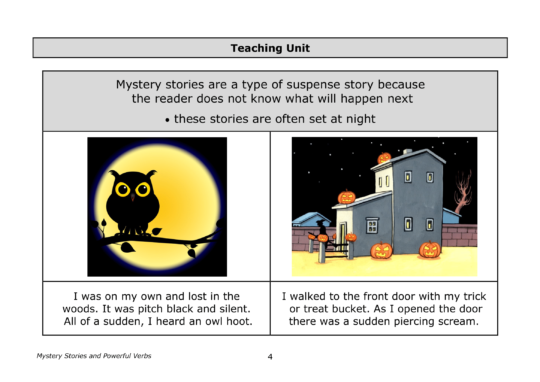

Y6 Mystery Stories and Powerful Verbs
£3.00 Add to basket £3.00Add to basket
£3.00Add to basketKS2 National Curriculum:
✓ Selecting powerful verbs for mood
✓ Identifying main and subordinate clauses
✓ Building sentences that build suspense
✓ Peer assessing writing impactThis lesson focuses on how mystery stories are made interesting by using powerful verbs to describe actions and by using conjunctions to vary the length of sentences. This unit also looks at main and subordinate clauses and subordinating and coordinating conjunctions.
There is a five-minute evidence-based CPD activity at the end of this lesson which will develop classroom teachers’ skill set. This CPD consists of a research extract on independent learning with a five-minute activity based on this extract.
VIEW -
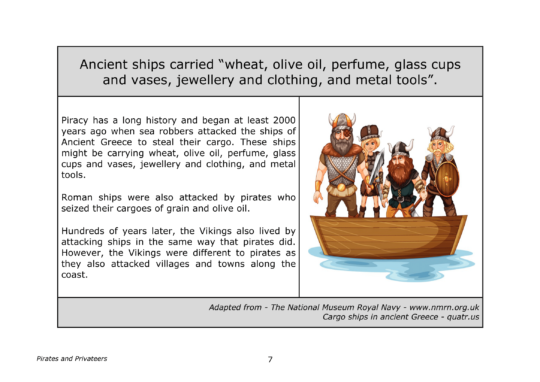

Y6 Pirates and Privateers
£3.00 Add to basket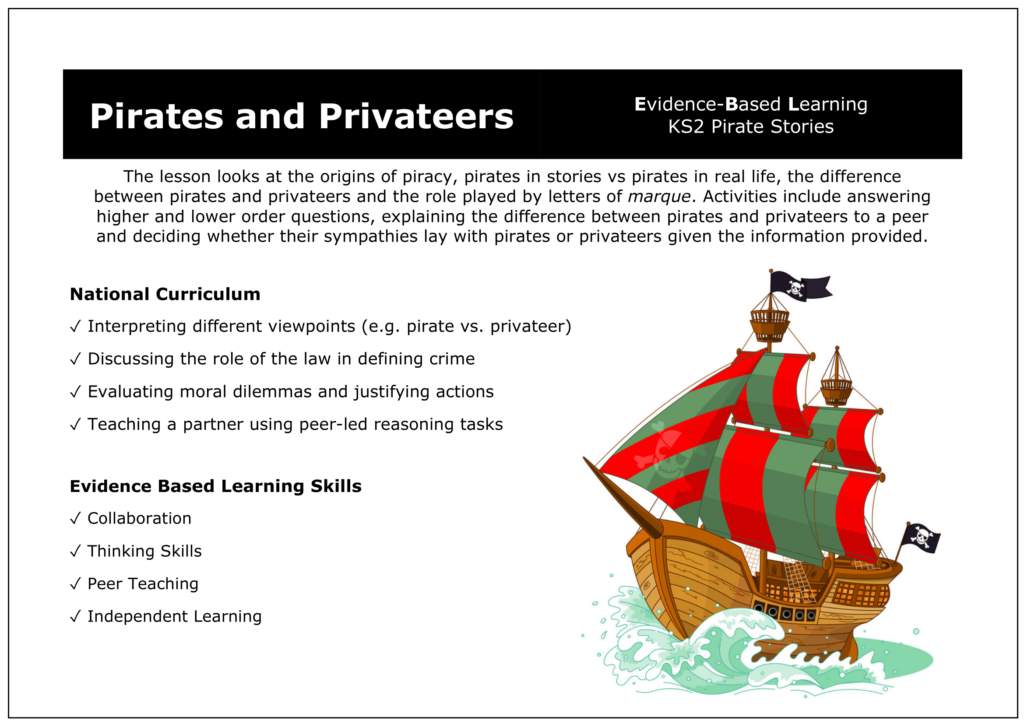 £3.00Add to basket
£3.00Add to basketKS2 National Curriculum:
✓ Interpreting different viewpoints (e.g. pirate vs. privateer)
✓ Discussing the role of the law in defining crime
✓ Evaluating moral dilemmas and justifying actions
✓ Teaching a partner using peer-led reasoning tasksThe lesson looks at the origins of piracy, pirates in stories vs pirates in real life, the difference between pirates and privateers and the role played by letters of marque. Activities include answering higher and lower order questions, explaining the difference between pirates and privateers to a peer and deciding whether their sympathies lay with pirates or privateers given the information provided.
There is a five-minute evidence-based CPD activity at the end of this lesson which will develop classroom teachers’ skill set. This CPD consists of a research extract on independent learning with a five-minute activity based on this extract.
VIEW -

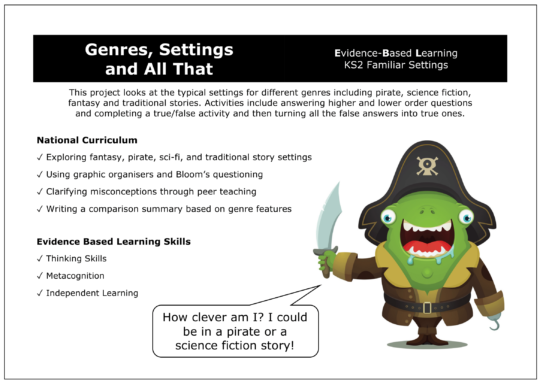
Y5 / Y6 Genres, Settings and All That (project)
£3.00 Add to basket £3.00Add to basket
£3.00Add to basketKS2 National Curriculum:
✓ Exploring fantasy, pirate, sci-fi, and traditional story settings
✓ Using graphic organisers and Bloom’s questioning
✓ Clarifying misconceptions through peer teaching
✓ Writing a comparison summary based on genre featuresThis project looks at the typical settings for different genres including pirate, science fiction, fantasy and traditional stories. Activities include answering higher and lower order questions and completing a true/false activity and then turning all the false answers into true ones.
There is a five-minute evidence-based CPD activity at the end of this lesson which will develop classroom teachers’ skill set. This CPD consists of a research extract on independent learning with a five-minute activity based on this extract.
VIEW

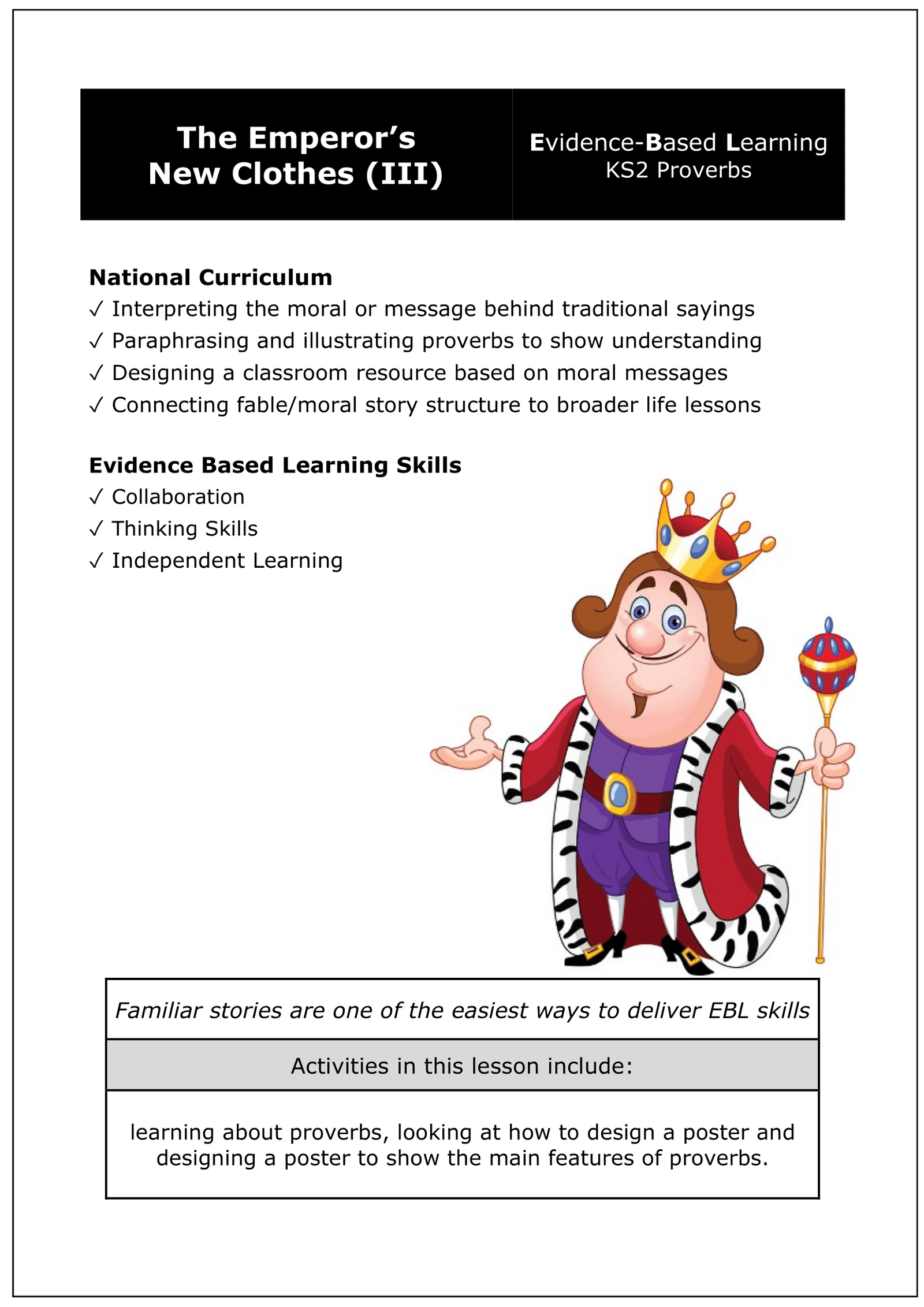
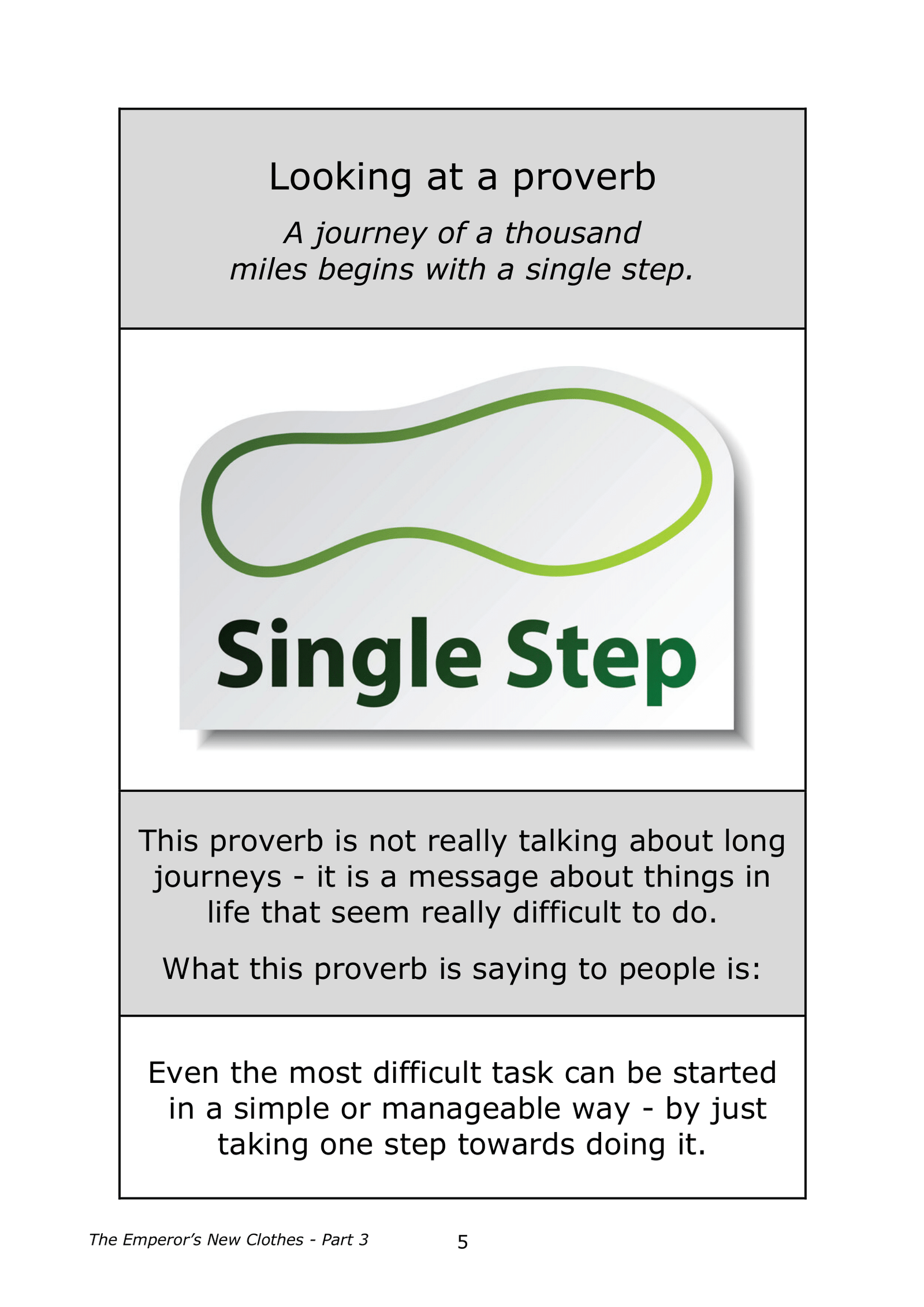
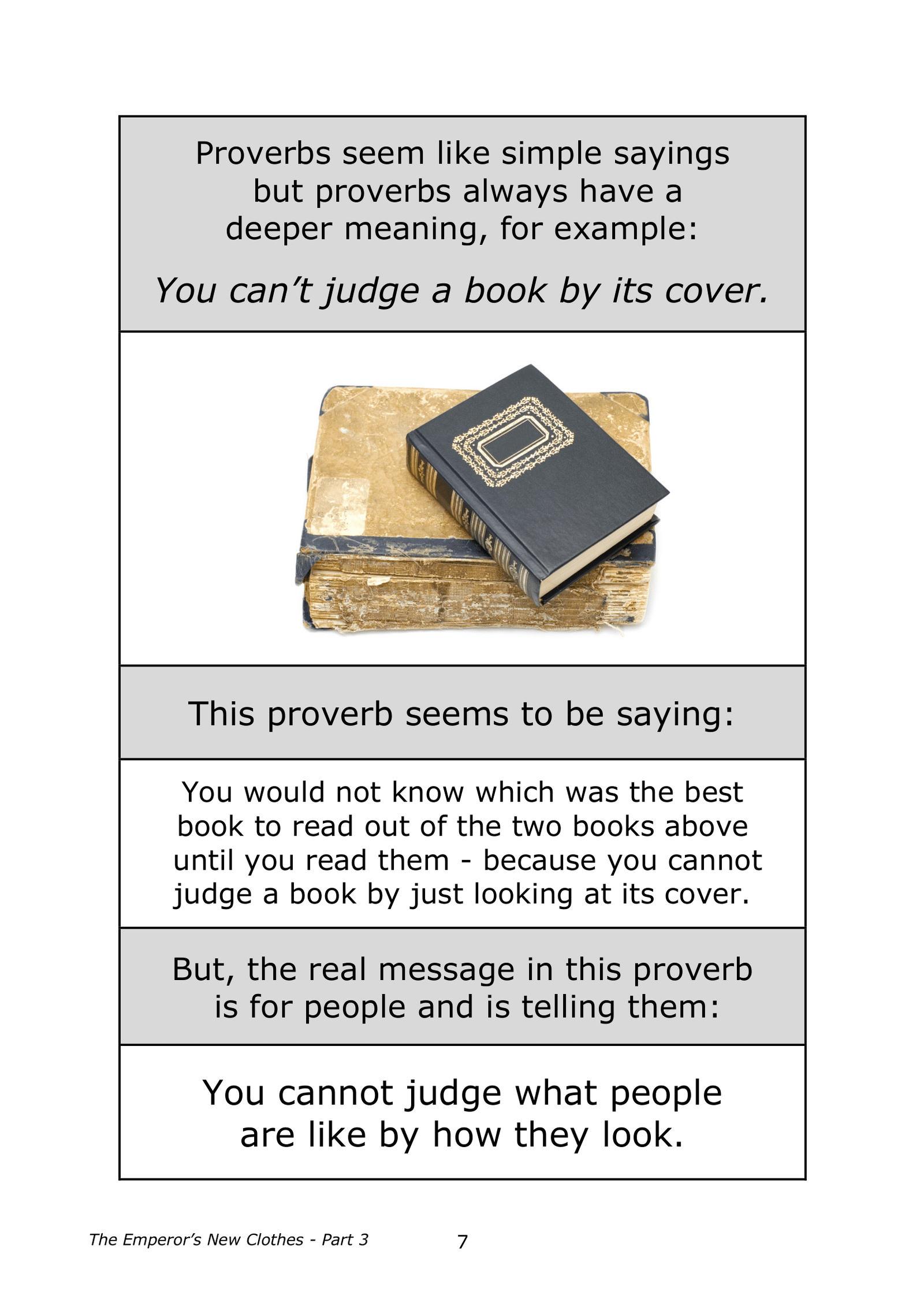
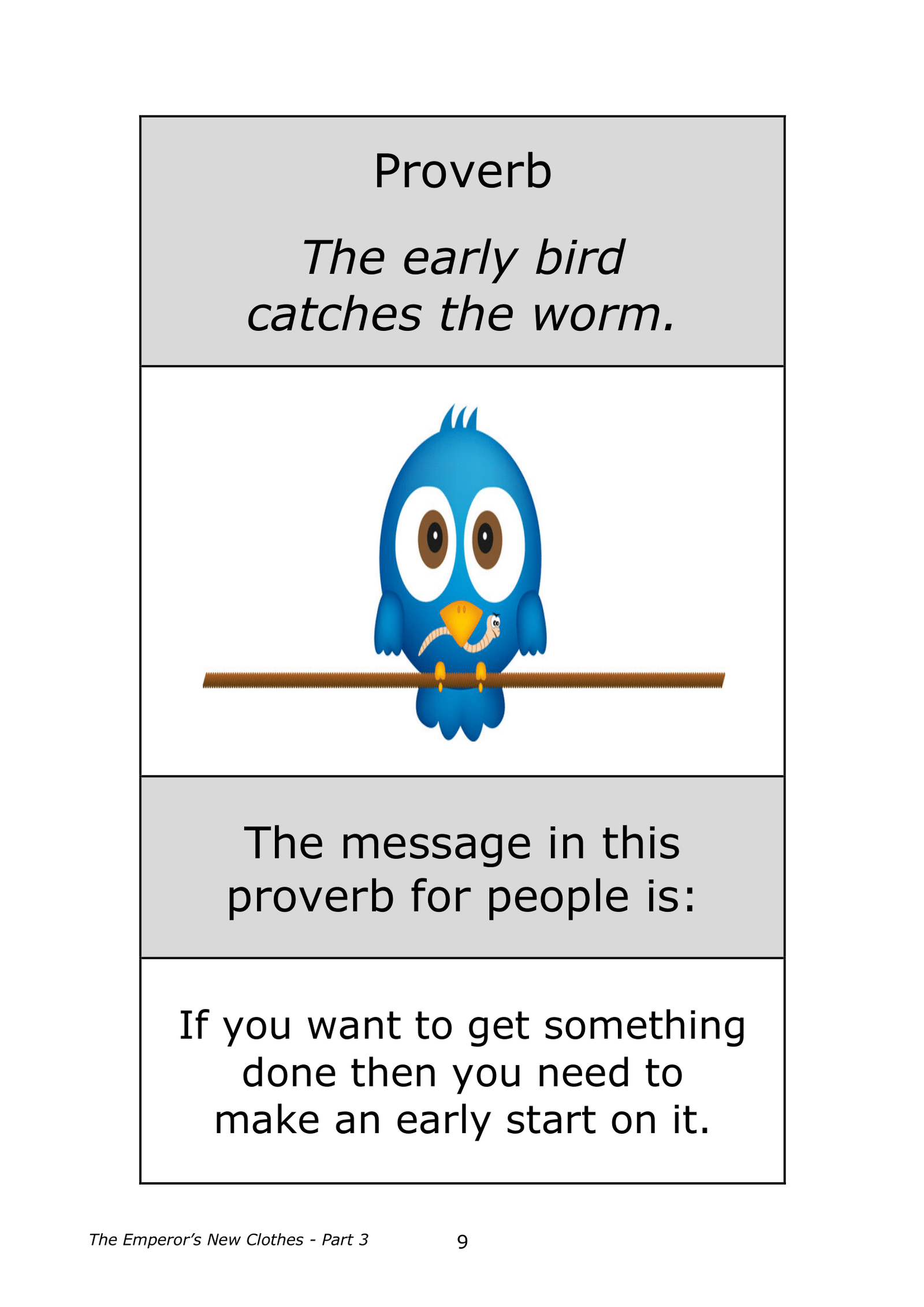
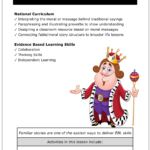
Philipem (verified owner) –
We asked a.i. to review this lesson. This is what it said:
Teaching English and Evidence-Based Learning Skills in One Lesson
I recently came across a fantastic KS2 resource that allows teachers to develop English and key learning skills simultaneously – saving valuable lesson time. It’s a lesson plan based on the classic tale of the Emperor’s New Clothes.
🚀 Why this lesson is great
🌟 Teaches the features and meaning of proverbs
🌟 Includes a collaborative poster design activity
🌟 Develops 3 key evidence-based learning skills: collaboration, thinking skills and independent learning
🌟 Contains a 5 minute teacher CPD activity on independent learning
The lesson starts by introducing what proverbs are, with plenty of examples for children to analyse. Pupils then work in pairs to design an informative classroom poster on proverbs, putting their understanding into practice.
There are two independent learning tasks to consolidate what has been learnt, including summarising proverbs in their own words. The CPD activity provides teachers with recent research on how self-regulation leads to independent learning, plus a short task to check understanding.
I would give this complete, ready to use resource 5 stars 🌟🌟🌟🌟🌟 as it develops so many skills efficiently in one go. The Emperor’s New Clothes story is familiar to most children too, so they can focus on developing new English and thinking skills rather than grappling with unfamiliar content.
I highly recommend this lesson for a time efficient way of covering multiple learning objectives. The key EBL skills it focuses on are based on substantial educational research over the past 50 years.